If we had to boil it down, these 7 business tools would be our must-haves.
Running a business is hard. You've got expenses to manage, team members to keep in the loop and on track, customers to keep happy, and the list goes on (and on).
Even to the most experienced entrepreneurial adrenaline junky, running a business can feel like spinning plates.
And if you don't have efficient processes in place, those plates will eventually come crashing to the ground. Fortunately, we live in the age automation. So there are a gazillion tools out there to help you keep things under control.
But unfortunately, because there are so many tools to choose from, picking the right ones can end up feeling like another plate to spin. Well, we're here to help with that.
If you're looking for a place to start, the following 7 business tools are your best bet to get on the road toward organization.
1. Make Everything Easier with Jotform Apps

Apps make everything easier. They simplify the most complex of processes and can go anywhere with you, your team, and your customers.
And thanks to Jotform Apps, you can create just about any kind of app you could ever want or need – without writing code. Its drag-and-drop interface puts app-building power in the palm of your hands – whether you're a non-techie or a tech guru.
When it comes to use cases, the sky's the limit…
- Collect valuable customer data with widgets, forms, and links.
- Provide a user-friendly customer service hub.
- Create a company portal where employees can communicate, collaborate, and store internal documents and forms securely.
- Integrate with other tools in your workflow so your important projects never miss a beat.
- Keep your most critical data safe, secure, and always within reach.
The two coolest things?
- Jotform Apps comes with tons of free templates you can customize to reflect your brand.
- The apps work on any smartphone, tablet, or computer.
2. Use Awesome Free Web Tools and Get Expert Advice with HostingPill

When it comes to running an online business, nothing is as important as the health and efficiency of your website. And HostingPill is a great online resource for maintaining that health and efficiency.
They offer several helpful tools that are free to use and sure to help get and keep things running like a well oiled machine. These tools include:
- Domain Availability Checker – When you're just getting started, find out if the site URL you have in mind is available and, if not, find one that is.
- Is It Down? Checker – If your site speed is slow or you're getting a lot of 404 errors, use this tool to find out whether your site is up and running.
- Site Hosting Spy – Find out the hosting service a competitor's website is using.
- Whois Lookup – Find out who owns a specific domain name.
- Lorem Ipsum Generator – Generate “dummy” text to use when laying out a new website design.
The site also features tons of helpful review articles, as well as pro services for design, marketing, and site management.
3. Manage contractors, expenses and invoices with FreshBooks
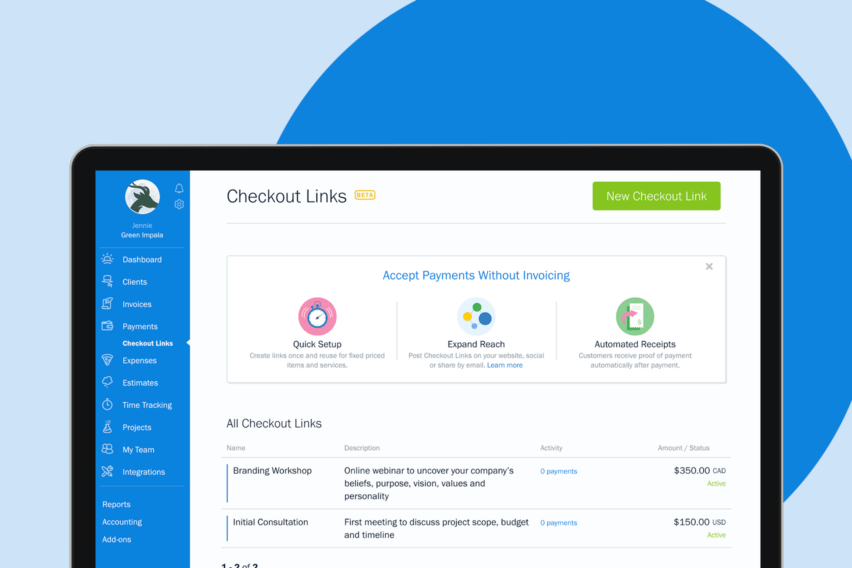
If you're business is based on freelancing and sub-contracting, or you just have some expenses to track, FreshBooks can be extremely useful. When I first started my business, I did a lot of freelancing, which means I also did a lot of invoicing.
I wasn't tracking my time very well, and I started realizing that retracing my steps to invoice my clients was wasting huge amounts of time. It was frustrating, tedious, and inefficient. But this all changed when I started using FreshBooks.
I was able to track my time to the minute using their built-in timer. I'd just annotate each time entry with a sentence describing the work I just finished. Then when it came time to invoice, Freshbooks would automatically generate the invoice. It turned out to be a huge time and money-saver.
FreshBooks also has a free invoicing service called Free Invoice Generator. So if you're unsure about the insanely amazing benefits you can get from using FreshBooks, just start with their free, ultra-handy invoice creation service.
4. Track Business Finances with QuickBooks
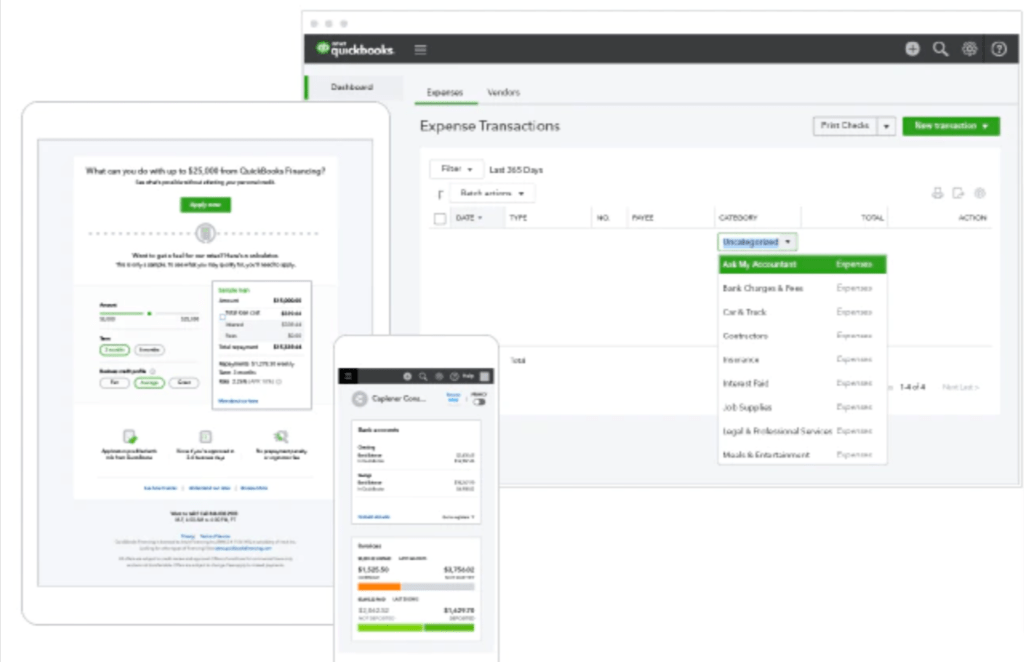
If you've been in business for any amount of time, you've probably heard of QuickBooks. But what you might not know is that it's more than just accounting software.
It allows you to…
- Create invoices
- Track your cash flow
- Accept payments
- See what’s selling
- Plan for the future
- …and a whole lot more.
Tracking financials accurately is essential for any business. QuickBooks saves you time and money by connecting your business tools and making it easy to track everything you need to make important business decisions.
And QuickBooks Online makes any place your place of business. Working online with cloud accounting software means your business data is safe, accessible, and synced across all your devices.
Also, with QuickBooks, you don’t need to pay big money for robust online budgeting and financial planning tools to help you plan for rainy days.
Consider checking out one of their free online budgeting tools that can get you started saving money right now.
5. Manage Projects and Versions within GitHub
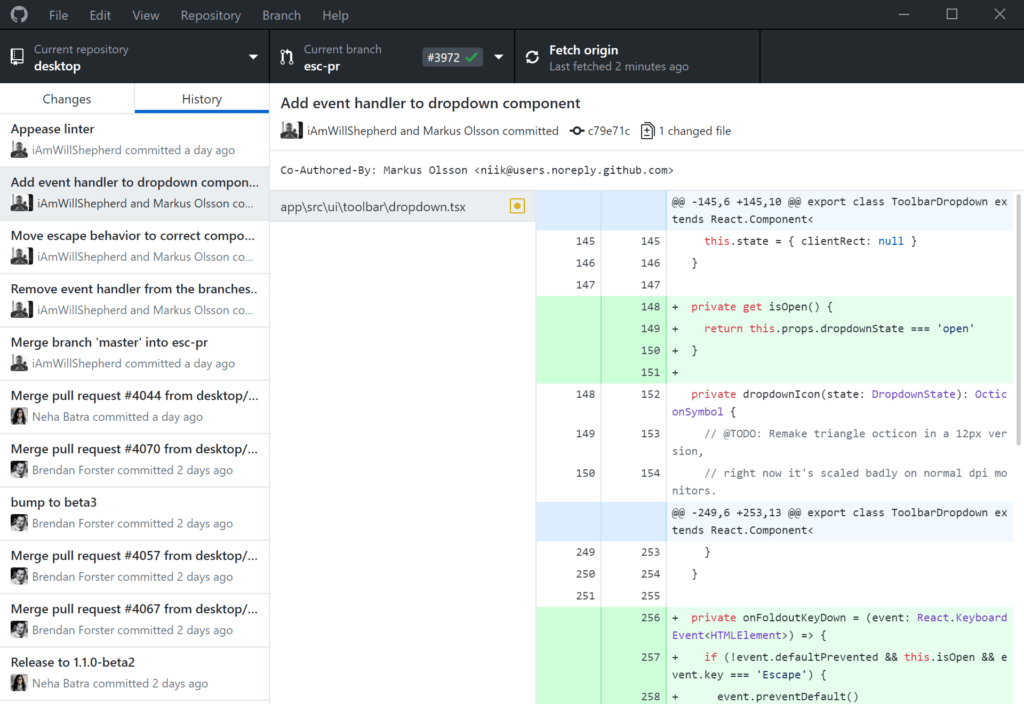
You've probably also heard of GitHub – that is, if you're a developer or you've worked with any developers. I know that GitHub can be a bit mystifying for non-developers, but did you know it can be used for a lot more than just code?
GitHub is actually jam-packed with countless, useful features. I know graphic designers who use GitHub to manage versions of their designs and authors who use it to track versions of their manuscripts.
Really, it can be used to manage just about any digital asset. We use it not only to track our code, but also to track our projects (using GitHub issues) and to maintain a knowledge base (with GitHub Wikis).
6. Communicate and Collaborate in Real Time with Slack

Out of the hundreds of tools we've tried over the years, very few have instantly become an integral part of our process. Slack is one such tool. It has drastically increased the effectiveness and efficiency of our 100% remote team.
Slack is both a team chat tool and a shared channel inbox. It allows us to set up separate group channels (with different team access to each) and individual chats. And it also has the ability to create threaded chats within the group chats.
One of the coolest things about Slack is that it integrates with pretty much all the leading software out there, even DocuSign eSignature (which is unexpected and kind of awesome).
7. Make Meetings an Anytime-Anywhere Endeavor with Zoom

As I mentioned, our entire team works remotely, so we've tried all kinds of screen sharing services and virtual meeting apps. Most of these solutions were adequate, but there was usually an issue: either they were way too expensive, or they were affordable but lacking features.
Our last solution was close but didn't allow us to see each others' cursors, didn't handle audio, and using the scroll wheel on a remote machine didn't work well. But we used it because there wasn't anything better at the time.
But now we use Zoom, which is pretty much our hero when it comes to virtual meeting apps. Here are the two main reasons:
- Zoom handles audio perfectly (not all solutions work well in this department) and allows you to record and store meetings.
- It's free for meetings up to 40 minutes with up to 100 participants. As we've grown, we've had to upgrade to allow for longer meetings, but the freebie version was a lifesaver in the beginning.
Final Thoughts
In the early days, finding the right business tools can feel overwhelming. There are just so many to choose from! But remember, you don't have to (and you really shouldn't) try to incorporate everything all at once.
Start with a couple of the tools in our list to get you rolling. Over time, you'll find it becomes easier to add more tools to the mix. After all, the best tools aren't going anywhere. There'll still be there when you're ready to use them.
If you liked this article, be sure to follow us on Facebook, Twitter, Instagram, and LinkedIn! And don't forget to subscribe in the box below.




